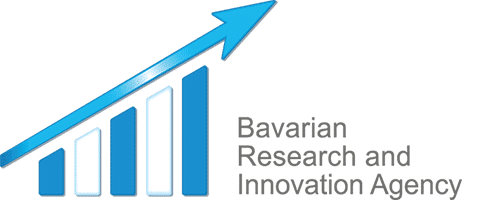
FORGLAS | HarWin | InDeWaG
New materials for energy-efficient buildings
From 2012 to 2015, the EU project HarWin developed lightweight windows from new polymer-glass composites, which aim to make buildings more energy efficient in accordance with the EU initiative “Energy-efficient buildings” (EeB). Since 2015, InDeWaG has been developing highly innovative yet cost effective technology for glass façades.
However, the foundations for both international research projects were laid by the Bavarian research association FORGLAS between 2009 and 2012. All three projects were or are coordinated by Professor Monika Willert-Porada from the University of Bayreuth.
FORGLAS
The FORGLAS research team achieved many things, including developing functional coatings for plate glass elements and glass-based additives for render and painting in order to reduce the energy requirements of new and old buildings with little effort. A number of industry representatives confirmed the utmost relevance of the findings for the Bavarian glass and construction industry.
HarWin
HarWin’s aims included 1) Significantly reducing the material and weight of windows and frames, 2) Finding a way to recycle key components, 3) Improving the use of natural light, and 4) Controlling the flow of heat through glass and frames. Furthermore, its lightweight windows are easy to integrate into existing and new buildings and help to significantly cut costs for transport and installation.
InDeWaG
The glass façade technology, which InDeWaG is aiming to develop to market maturity, is based on elements that can both heat up and cool down. This is achieved using chambers that are filled with a liquid depending on the climate zone. The new elements are transparent and absorb sound; solar and heat exchange modules can also be added.
The journey to success – From a Bavarian research association to an EU project
The Bavarian Research Foundation (Bayerische Forschungsstiftung) provided around €2.2 million of funding for FORGLAS.
The money was a good investment, as confirmed by industry representatives’ high level of interest in the results. Bayern Innovativ GmbH also provided support during the marketing phase. Projekttraeger Bayern – ITZB was also involved, supervising the application of the research results in industry. In 2011, the association showcased its work in conjunction with BayFOR at a joint stand with Bayern Innovativ GmbH at Intersolar Europe. The subsequent Europe-wide development of glass-based materials and systems for energy-efficient buildings ultimately led to the two EU projects HarWin and InDeWaG receiving funding of €3.4 million and €4.3 million respectively. BayFOR provided support in the funding application phase and also managed the administrative side and the PR work for the HarWin project.
Find out more at:

